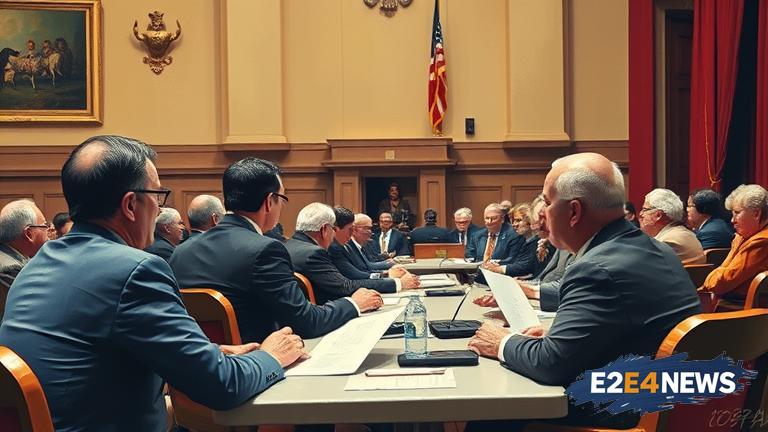In a recent turn of events, Texas House Republicans have voted against a motion to investigate election integrity, a move that has been met with criticism and concern from various stakeholders. The decision has sparked a heated debate about the importance of ensuring the integrity of the electoral process. The motion, which was introduced by a Democratic representative, aimed to establish a committee to investigate allegations of voter suppression and election irregularities. However, the Republican-dominated House voted against the motion, citing concerns about the cost and scope of such an investigation. The vote has been seen as a partisan move, with many arguing that it undermines the democratic process and the principles of fair and free elections. The controversy surrounding the vote has highlighted the deep-seated divisions within the Texas legislature, with Democrats accusing Republicans of trying to suppress voter turnout and undermine the electoral process. The issue of election integrity has been a contentious one in Texas, with many allegations of voter suppression and election irregularities surfacing in recent years. The state has a history of implementing strict voter ID laws and other measures that have been criticized for disenfranchising certain groups of voters. The vote against investigating election integrity has been seen as a setback for those advocating for greater transparency and accountability in the electoral process. Many have expressed concern that the decision will embolden those who seek to manipulate the electoral system for their own gain. The controversy has also sparked a wider debate about the role of politics in shaping the electoral process and the need for greater oversight and regulation. As the debate continues to unfold, it remains to be seen how the issue of election integrity will be addressed in Texas and what implications the vote will have for the state’s electoral system. The decision has been met with widespread criticism from civil rights groups, voter advocacy organizations, and other stakeholders who argue that ensuring the integrity of the electoral process is essential to maintaining public trust and confidence in the democratic system. The vote has also been seen as a reflection of the broader national debate about election integrity, with many states implementing measures to restrict voting rights and others pushing for greater voter access and protection. The issue of election integrity is complex and multifaceted, involving a range of factors including voter ID laws, voter registration, and election security. As such, it requires a comprehensive and nuanced approach that takes into account the diverse needs and concerns of all stakeholders. The controversy surrounding the vote in Texas highlights the need for greater dialogue and cooperation between lawmakers, civil society organizations, and other stakeholders to ensure that the electoral process is fair, transparent, and accountable to all. Furthermore, the issue of election integrity has significant implications for the health of democracy, both in Texas and beyond. It is essential that lawmakers and other stakeholders prioritize the integrity of the electoral process and work towards creating a system that is fair, accessible, and secure for all voters. The vote against investigating election integrity in Texas is a reminder that the struggle for voting rights and election integrity is ongoing and that continued advocacy and activism are needed to protect and strengthen the democratic process. In conclusion, the vote against investigating election integrity in Texas is a concerning development that highlights the need for greater oversight and regulation of the electoral process. It is essential that lawmakers and other stakeholders prioritize the integrity of the electoral process and work towards creating a system that is fair, accessible, and secure for all voters. The controversy surrounding the vote is a reminder that the democratic process is not immune to manipulation and that continued vigilance and advocacy are needed to protect and strengthen it. The issue of election integrity is complex and multifaceted, and it requires a comprehensive and nuanced approach that takes into account the diverse needs and concerns of all stakeholders. As the debate continues to unfold, it remains to be seen how the issue of election integrity will be addressed in Texas and what implications the vote will have for the state’s electoral system.
